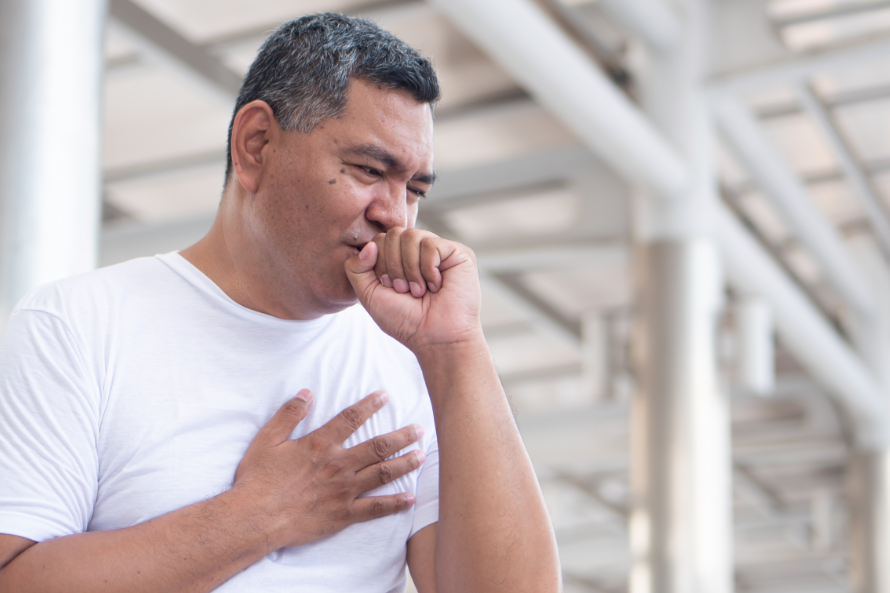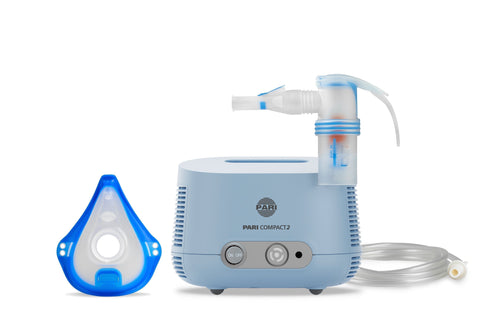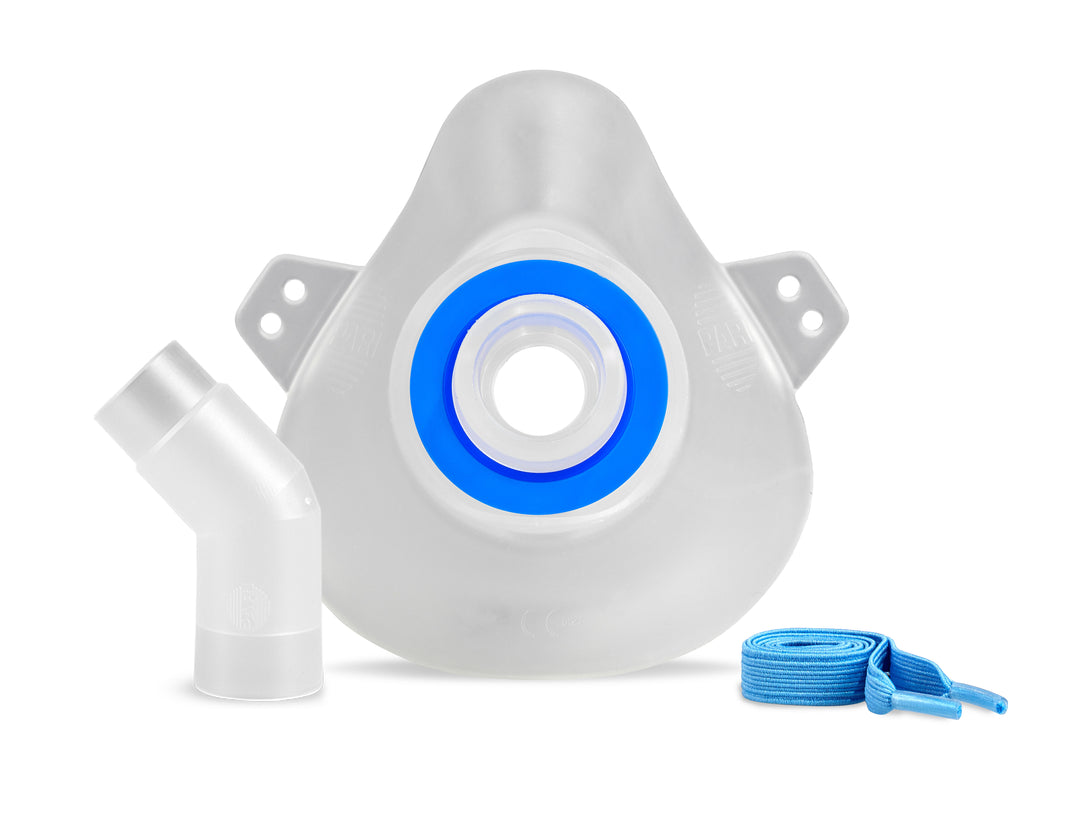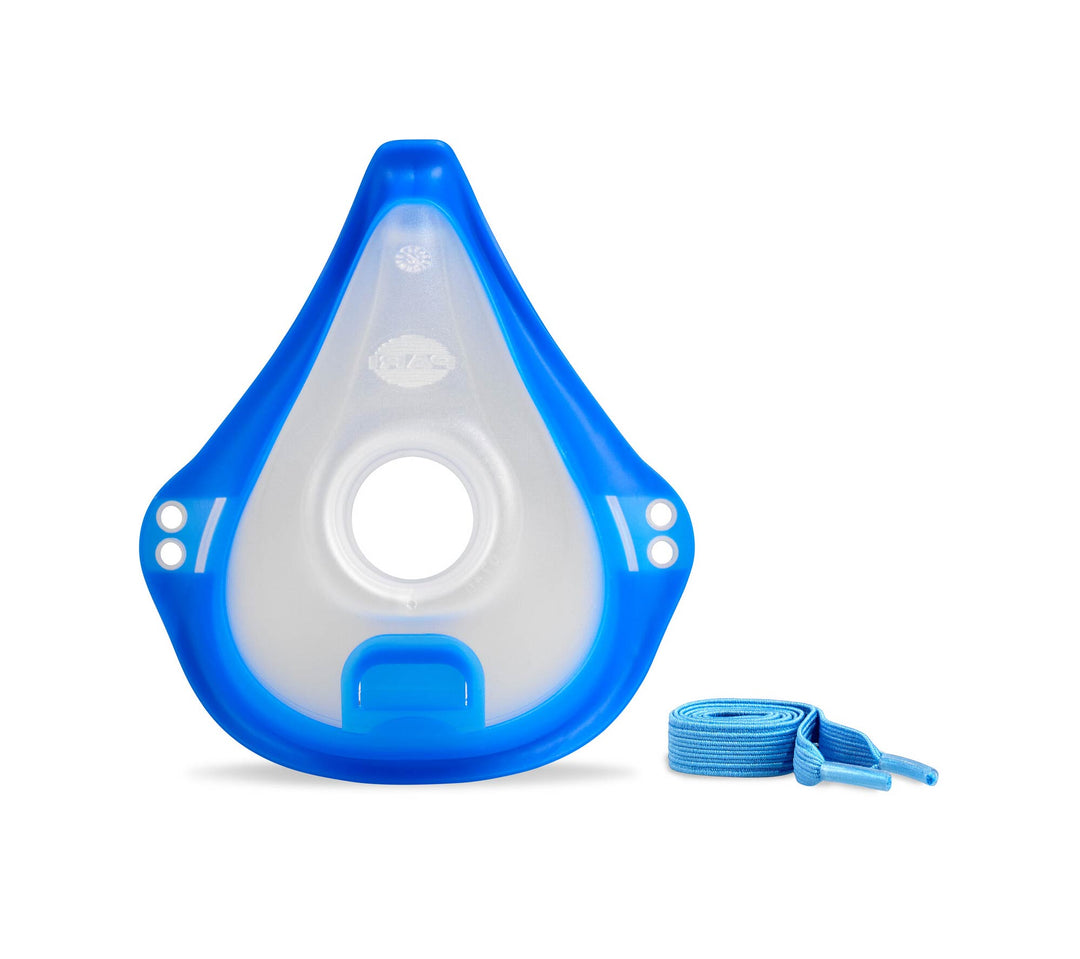
What Is COPD?

Inhaler vs Nebuliser: What’s the difference?

Mesh vs Compressor Nebuliser - which one is right for you?
Definition:
COPD stands for Chronic Obstructive Pulmonary Disease.
Chronic means that disease is ongoing & that your breathing problems will gradually get worse over time.
Obstructive means that your lungs have blockages or some kind of restriction to normal airflow. (For example, this can be caused by too much mucus in your lungs).
Pulmonary means it affects your lungs.
Disease means that something has been affected & is not working properly.
COPD is the name for several lung conditions that all cause breathing difficulties, in the UK it is estimated that there are around 1.2 million people who have a diagnosis for COPD. Most people with a diagnosis of COPD are over the age of 40 and have a history of exposure to harmful substances. Possible sources of such harmful substances could be cigarette smoke, workplace chemicals, other noxious particles or air pollution.
Contact usSymptoms:
Symptoms of COPD include a difficulty breathing or shortness of breath, a persistent cough (sometimes called a ‘smoker’s cough’), mucus (sputum) production and wheezing. You might find you get tired more quickly and that you have difficulties taking a deep breath. You might also notice you are losing weight without trying & that you have chest infections more frequently.

Over time, these symptoms could limit normal day-to-day activities. For example, shopping, climbing the stairs, cleaning/housework & taking the dog for a walk might all become more tiring. If you are experiencing such symptoms, please consult a healthcare professional.
Your symptoms can be an important indication of whether you have COPD or asthma. If your breathlessness is better on some days rather than others, or if you often wake up in the night feeling wheezy, it may be that you have asthma rather than COPD.
Diagnosis:
Many people do not realise they have COPD, but the earlier it is diagnosed the better your outlook will be.
There are 4 stages of COPD:
· Stage I (Early)
· Stage II (Moderate)
· Stage III (Severe)
· Stage IV (Very Severe)
Healthcare professionals will use different methods to work out what stage your COPD is at. These methods could include measuring how often your COPD has worsened, the number of times you’ve visited the hospital because of your COPD & your spirometry/peak flow results. Spirometry is a set of measurements, usually made at the hospital, that calculate the amount of air you can breathe in & out and also the speed at which you can exhale.
Respiratory Healthcare professionals are highly skilled at distinguishing between COPD with asthma. They can tell this by looking at the test results.
· With COPD your airways become narrowed permanently.
· With asthma, the narrowing of your airways comes and goes.
Please ensure that you follow the information given to you by your healthcare professionals.
Treatment:
The disease can be treated, usually this is done using inhalers & tablets to help you breathe more easily.
If you smoke, current guidance states that it is important to stop. Support for this can be found by consulting with local healthcare professionals who will explain what help is available.
Inhaler technique is important. It is thought that most people who use inhalers are using them incorrectly. If your technique is poor, the effectiveness of the treatment could be reduced significantly. It is therefore really important you learn how to use the inhalers you are given correctly.
Often you will also be given a spacer device to use with your inhalers. Spacer devices are designed to help the medication get to where it is needed, your lungs. If you are not sure, ask the healthcare professional who prescribed them how to use the ones you have.
It might also be the case that the healthcare professional needs to review your dosing or, even whether your disease has progressed & you need a different therapy option altogether.
You should be offered pulmonary rehabilitation; it is a specialised programme of exercise designed to keep your lungs as healthy as possible. By keeping your lungs healthy you can improve your ability to exercise and therefore also your quality of life. You might be offered an oscillating PEP device to support your lung health. The impact of pulmonary rehabilitation is often underestimated and by combining the two approaches of inhaled medicines & pulmonary rehabilitation you’re likely to get the most benefit.
As the disease progresses you might be prescribed therapies that require a nebuliser & extra oxygen for you to use at home. Proper treatment, and an active lifestyle, can help keep the condition under control.
Disclaimer: none of the above constitutes medical advice & you should always seek help from a qualified healthcare professional such as your GP, hospital consultant, nurse or pharmacist.



